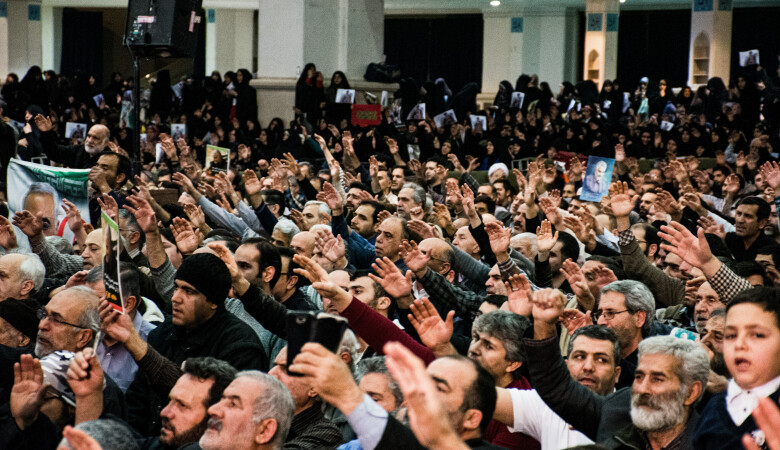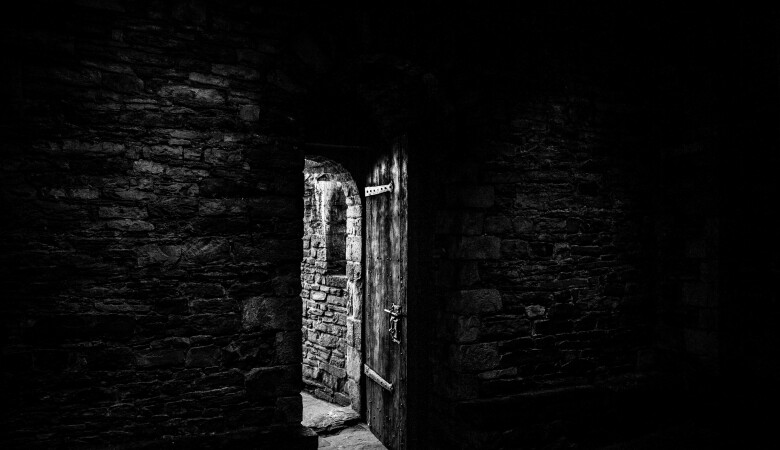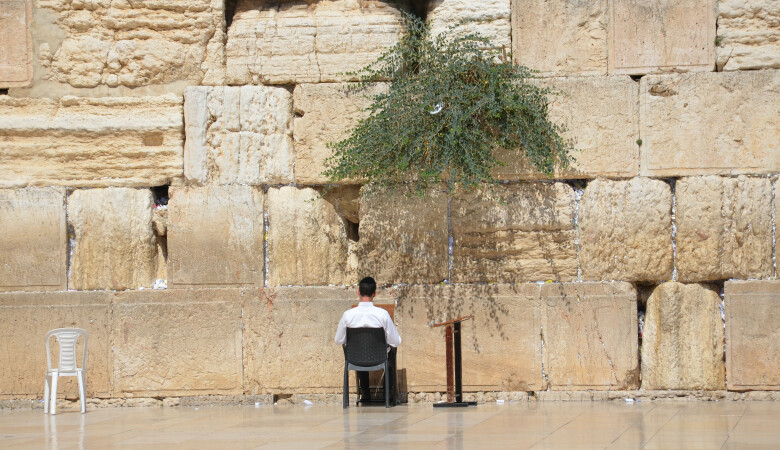Series: Mark
The Triumphant Entry: Superficial Worship of the True King (Mark Sermon 55)
June 04, 2023 | Andy Davis
Mark 11:1-11
Humiliation of Christ, Supremacy of Christ, Christ and the Old Testament
Jesus exposed Israel's superficial worship through his triumphal entry, his actions on that last week in Jerusalem, and his ultimate trial and crucifixion.
- SERMON TRANSCRIPT-
Turn to your Bibles to Mark 11 as we continue our study in Mark's gospel. One of the greatest truths of the Bible is the revelation of the true purpose of the human race. We were created by God in the image of God with staggering levels of complexity. David said in Psalm 139, "I praise you because I'm fearfully and wonderfully made." Then his next statement was, "Your works are wonderful. I know that full well." This points to the reason for our existence that we would know God and worship him as God.
God has given us amazing brains, the ability to study the universe around us and marvel at it, but behind all of the manifestations of the works of God as God himself, and God is infinitely greater than all of his creative works combined. We human beings were created in his image with special abilities that we may know God and glorify him as God. Westminster Shorter Catechism said famously, the chief end or purpose of man is to glorify God and enjoy him forever. Tragically, sin entered the world and has darkened our minds and our hearts. It has blinded us so that we cannot see the glory of God in creation and the infinite greatness of God as creator.
Instead, we become idolaters, worshiping and serving the creature, the created things, rather than the creator. Now, the ultimate work of Jesus the Redeemer is to heal our minds and our hearts so that we will perceive the truth about God and we will worship God truly and rightly. Jesus described his mission on behalf of his Heavenly Father in this way in John 4:23-24, “Jesus said to the Samaritan woman at the well, ‘A time is coming and has now come when the true worshipers will worship the Father in spirit and in truth, for they are the kind of worshipers the Father seeks. God is Spirit. And those who worship him must worship in spirit and in truth.’"
God is seeking worshipers who will worship him in Spirit and truth. What does that mean? Start with truth. Truth is to know God as He truly is, his attributes truly, his nature truly, his mind and his will and his purposes truly, his loves and his hates truly, and knowing the true God and all these trues about God, then to worship him with our spirits that is with our whole hearts, passionately and intentionally, indirect proportion to his infinite worth. That's what we were made for. Worship is worth-ship, passionately ascribing to God what He's worth, his worthiness.
Jesus came into the world on behalf of Almighty God to achieve this mission, to seek and to save, to win eternal worship for God in Spirit and truth from people who were sinners, darkened in their minds and their hearts, who were idolaters, worshiping and serving created things rather than the creator. In today's account, we see the Jewish people lining the road as Jesus was riding a donkey up to the city of Jerusalem. They are passionate. They are passionately celebrating Jesus, and they seem to be worshiping him, but it is to some degree superficial. It is to some degree, ignorant and self-serving. Jesus wants their worship. He came to win their worship, but not ultimately like that, not superficial, not surface, not self-serving.
When I was a college student, I worked up in the Boston area at a number of high-tech jobs. One summer I worked as a technician for a company that made semiconductors, tiny electronic components, and one of the ways they did this was something called wet metalization. By the way, these are the kind of illustrations you get from me as a pastor, so bear with it. They would put materials in a bath filled with a liquid that contained, in that case, gold atoms floating around and the process would coat the materials in the gold. One day the scientist there asked if I had any jewelry I wanted gold-plated. I thought, great opportunity. I actually had a cross made of some cheap metal and I gave it to him, brought it to him, and he put it in this bubbling, sizzling bath for about five minutes. It came out shining. It was completely gold-plated. I was amazed. That cross was shining and radiant, and I put it on a chain and wore it around my neck. Two days later, I looked at it and almost all of the gold was gone. Just rubbing against my skin or against the fabric of my shirt had taken the gold covering completely off. To me, this is a picture of shallow superficial worship, the worship we see of these people in Jerusalem that they gave Jesus that day as he rode his donkey into the holy city. It was shiny, but it was superficial. And within a short time, it was all gone.
But Jesus came to work in us deeply, not superficially. He came to make us genuine, true eternal worshipers of God, people who will worship God in Spirit and truth intelligently, knowingly, deeply, and passionately. The triumphal entry of Christ is one of the most ironic passages in the Bible. Here is the incarnate son of God, He is in fact infinitely worthy of praise. He's entering Jerusalem, the city of David. He is being praised by his people, but not one of them really understands who He is. Each of them will in some degree, I think, be stunned by his actions that week and certainly by the outcome of him being crucified by the Romans. We don't know this for a fact, but there may well be some people who shout “Hosanna” on the one day and several days later are shouting “Crucify, crucify.” We don't know if it's the same people. The city of Jerusalem was filled with millions of people, and according to Matthew 21:10, most of the people didn't even know who it was that was riding into the city. They asked, "Who is this?" But one of the most remarkable parts about this passage and this time and the synoptic passages as well is, Jesus defends the worship. He accepts the worship, and that's part of the mystery. We're going to walk through all of this today.
"The triumphal entry of Christ is one of the most ironic passages in the Bible. Here is the incarnate son of God, He is in fact infinitely worthy of praise. He's entering Jerusalem, the city of David. He is being praised by his people, but not one of them really understands who He is."
I. The Specifics of the Triumphal Entry
Let's talk about the specifics of the triumphal entry. This is the final week of Jesus' life. We have four Gospel records of Jesus' life, Matthew, Mark, Luke, and John. As you add up all of the chapters, all of the verses in the four gospels, more than half of the words in the four gospels concentrate on the events of the final week of his life. It's a tremendously significant period of Jesus' life, and the triumphal entry is the beginning of that final journey.
It's the time of the Passover feast, one of the three times in a year that every Jewish male was required to go up to Jerusalem. The Passover celebrated the momentous events of the Exodus, millennia and a half before that, culminating in the 10th, the dreadful 10th plague, the plague on the firstborn in which the blood of the Passover lamb was spilled and the blood applied to the doorposts and the lentils. The angel of the Lord saw the blood of the Passover lamb and passed over and did not kill the firstborn in those Jewish homes. That's Passover, a yearly celebration. All of the Jewish people assembled for it.
Huge crowds thus were flowing, multitudes flowing into the city. Based on a census taken a short time after Jesus' life, the number of lambs slaughtered during the Passover was 260,000 Passover lambs. According to Jewish custom, one lamb could be offered for up to 10 people. That gives you a picture of well over two million pilgrims flooding into the city for this time. The Roman authorities and Roman soldiers would've been on high alert, careful to avoid any incident or riot that might endanger Roman lives or Roman rule.
Our story begins at a small place called Bethphage near Bethany on the Mount of Olives. Jesus, putting all the gospel accounts together, has just healed the two blind men, one of them named Bartimaeus, who we looked at last week. He was now following Jesus along the road. He had also just converted Zacchaeus, the chief tax collector, that account in Luke, most powerfully of all. Just a few days before that, He had raised Lazarus from the dead after he'd been dead four days. The most spectacular and significant miracle of Jesus' life, a man dead four days raised up out of the grave. Huge crowds had gone from Jerusalem to Bethany to see Lazarus and to see Jesus. The whole region was in some sense electrified by Jesus' miracles and his ministry.
He enters Bethphage near Bethany on the Mount of Olives. Other than these facts, nothing is known about Bethphage. Bethany, the home of his good friends, Mary, Martha and Lazarus, was a place of regular refuge and renewal for Jesus. John's Gospel, chapter 12: 1-3, tells us Jesus visited the home of Lazarus, Martha, and Mary, and Bethany six days before the Passover. Thus, this was probably a Sabbath day, a Saturday. During that visit, Mary anointed Jesus' feet with a large lavish amount of costly perfume called nard. All four Gospel accounts link that costly gift, worth a year's wages, to Judas' motivation to betray Jesus for 30 pieces of silver. Jesus directly links Mary's lavish gift with his own death. He said in John 12:7-8, "Leave her alone. It was intended that she should save this perfume for the day of my burial. You will always have the poor among you, but you will not always have me." Jesus is intensely thinking about his own imminent death. There's no doubt about that. The chronology, the visit of this large crowd to Bethany probably occurred on the day after the Sabbath of Sunday. Therefore, the triumphal entry was a Monday. So much for your Palm Sunday and mine. I grew up in the Catholic Church. I remember the palm branches.
Look at Jesus' command as the account begins. Mark 11:1-3, “As they approached Jerusalem and came to Bethphage and Bethany at the Mount of Olives, Jesus sent two of his disciples saying to them, ‘Go into the village ahead of you. And just as you enter it, you will find a colt there, tied there, which no one has ever ridden. Untie it and bring it here. If anyone asks you, why are you doing this, tell him the Lord needs it and he will send it back here shortly.’”
With all these events swirling around, it is amazing to me, as you look in Matthew, Mark, Luke, and John, the four accounts of the final week of Jesus' life, how serenely and confidently and powerfully Jesus carries himself through all of it. It's really quite beautiful. It's powerful. The final week of his life, He knows full well what's going to happen to him. Look at him, He's in charge. He's orchestrating things. He commands this, He commands that. He gets things ready, orchestrates everything. This crushes that false view that we've mentioned before of Jesus being caught up in a swirl of events that were beyond his control, and next thing you know, He's arrested and He dies. What a great tragedy. None of that is true. Nothing ever got beyond Jesus' control. Nothing ever does. Jesus is in control of everything.
Notice also Jesus' astonishing, meticulous foreknowledge. “Go to the village ahead of you. And just as you enter it, you will find a colt tied there, which no one has ever ridden.” He knows exactly what they're going to find, the whole circumstance, all of that. He also deals with the concern that they might have saying, "We're just going to walk away with someone's colt?" “If anyone asks you anything about it, tell him the following thing, the Lord needs it, and he'll let it go.” I find that interesting. Try that this week, driving someone's car, “the Lord needs it.” Make sure that it's true. But it's a clear display of Jesus' divine meticulous foreknowledge. We're going to see it even more in Mark 14 when Jesus prepares the upper room for the Last Supper. Jesus will clearly predict to the two disciples being sent ahead of them for that moment, that just as they're entering the city, a man carrying a jar of water will be going into the city, follow him, et cetera. We'll get to all that, but that's Jesus' meticulous foreknowledge. In all of this, we see Jesus' knowledge and also the fulfillment of prophecy, and that this is going to be a significant event in the last week of Jesus' life.
Many of the prophecies tied to the Messiah, tied to Christ, are fulfilled, zeroed in on and fulfilled in this final week, including, of course, his death and his resurrection. Most of them, as a matter of fact. This particular one is the fulfillment of a prophecy in Zechariah. Matthew tells that the clearest in Matthew 21:4-5, “This took place to fulfill what was spoken through the prophet say to the daughter of Zion, "Behold, your king comes to you gentle and riding on a donkey, on a colt, the foal of a donkey." Two overriding concerns in Jesus' mind always is, number one, obey the Father. Do everything the Father has told me to do. Number two, fulfill the prophecies. How would the scriptures be fulfilled, say it must happen in this way? These two things are in his mind and they're really one and the same thing. The Father's will has been written out in prophecies and now Jesus is living them out.
Many of the prophecies that Jesus fulfilled would've been beyond his direct control. Think, for example, of the jar of wine vinegar that was put at the base of the cross that fulfilled a prophecy. Jesus couldn't have orchestrated that, or that the Roman soldiers would gamble for his clothing in fulfillment of Psalm 22. He couldn't make them do that. This one may be a little different. Jesus could have set this whole thing up intentionally, said, "Okay, we got to do the donkey ride into the city based on Zechariah." He could have gone ahead of time. This individual said, "Hey, look, at a certain time, I'm going to come. I'm going to need a colt. Make sure it's never been ridden on, if you would set it up." All of that could have been orchestrated maybe, maybe not. There is also the timing of the Passover itself in fulfillment of prophecy, as we'll see in a moment. The disciples obey, verses 4-6, “They went and found a colt outside in the street tied at a doorway. As they untied it, some people standing there asked, ‘What are you doing untying that colt?’ They answered as Jesus had told them to and let people let them go.” They obeyed. Everything was exactly as Jesus had said.
Now, there is a detail in Matthew's account that's worth mentioning. I, from time to time, go over and try to solve some problems that come into people's minds as they read the Synoptics. Matthew is problematic to some people in that there were actually two animals involved in this whole triumphal entry, a donkey and a colt, two animals. Some unbelieving commentators say that Matthew failed to understand Hebrew parallelism in the Zechariah prophecy, saying, “We all know that there's only one animal. He's just saying the same thing in two different words, and Matthew didn't understand that. But we, 20th century and 21st century commentators, do.” Do you see the arrogance in all that? Assuming that we know Hebrew parallelism better than Matthew, a first century Jew? That we know the prophecies better than a gospel writer? There is such arrogance in all that. If Matthew says there were two animals, there were two animals. I urge you not to try to picture Jesus riding two animals at the same time. I don't think that's what Matthew said, but he just brought them and he brought the donkey and the colt, and Jesus sat on the colt.
Though the disciples obeyed precisely what Jesus commanded, John's Gospel tells us they didn't really understand any of this. They didn't understand what was going on. As a matter of fact, none of the disciples did. John 12:16, “At first, his disciples did not understand all this. Only after Jesus was glorified did they realize that these things had been written about him and that they had done these things to him.” Later Jesus said this would happen. The Holy Spirit will come and guide you into all truth, then the lights will go on of the significance. It was with a triumphal entry.
Now we get the crowd. Let's understand the crowd, the crowd's shallow, self-serving worship, verses 8-10, “Many people spread their cloaks on the road, while others spread branches they had cut in the fields. Those that went ahead and those who followed shouted, ‘Hosanna! Blessed is he who comes in the name of the Lord. Blessed is the coming kingdom of our Father David. Hosanna in the highest.’" These are the crowds. Again, this is just a small grouping of people. It's a crowd, but there's a massive group of people in Jerusalem. Matthew 21:10 says many of the people didn't even know who this was that was riding in. Who is this? Oh, it's Jesus the prophet from Nazareth [Matthew 21:11]. But this is a group that did know who Jesus was. They're following him along the road. They've maybe been there for some of the miracles, and they're there and they're very, very excited about this. They spread their cloaks on the road. This is a humble display or display of humble submission to Jesus' kingly power, kingly majesty. They're willing to take the garments from their back that they might sleep in and lay them on the road for his donkey to ride over. It also says they cut branches from trees and spread them on the road. If they didn't have cloaks or there's more road to cover, they spread these branches. John 12:13 tells us they were palm branches, hence, Palm Sunday. It's beautiful how in Revelation 7:9 that multitude from every tribe and language and people and nation that come as a result of the gospel ministry are wearing white robes and holding palm branches in their hands and celebrating the salvation that Christ has won for them. But they're doing it there in spirit and in truth. How beautiful is that? We have that same image of the palm branches.
They're shouting things. They're shouting “Hosanna,” which means, “Oh, save” or “Save now.” They're shouting a prophecy, Psalm 118, verse 26, "Blessed is he who comes in the name of the Lord." It's a very important statement that Jesus himself quotes in Matthew 23, “You will not see me again until you, the nation of Israel, says, ‘Blessed is he who comes in the name of the Lord the Messiah.’" It's a welcoming for the Messiah, but they're shouting it. They're saying now is the time. Blessed is the coming kingdom of our Father David. This is obviously an open cry for the Messianic kingdom, the fulfillment of the prophecies made to David and to his household that God would build a house for David forever, that someone would reign on David's throne forever. They're crying for that. Blessed is the coming kingdom of our Father David, and that would include the destruction of all Jewish enemies by the Son of David ruling on David's powerful throne, causing his enemies to lick the dust from his feet, extending his sovereign reign from Jerusalem to the ends of the earth. That's what they're expecting. These cries are actually based on actual prophecies of Scripture, a coming Messianic kingdom that would crush all opposition. More on that in a moment. But they were also superficial. They underestimated the real issues going on. They underestimated what really had to happen there.
At the end of the account in verse 11, we have a very anti-climactic end. Look at verse 11, “Jesus entered Jerusalem and went to the temple. He looked around at everything, but since it was already late, he went out to Bethany with the twelve.” That was it. We know the next thing that's going to happen is, the next day, the cleansing of the temple. Jesus is there a bit on a scouting mission. He just looks around. He sees the wickedness and the sin going on, but He doesn't do anything about it at that point. It's late, but the next day He's going to take care of that, and He's going to begin the process that's going to lead directly to his death.There is work to be done and they're expecting the kingdom to come. But Jesus knows the real work is the corruption, the wickedness, the sin in the hearts of the people, and He's got to address that. That's how the account ends.
II. Eternal Layers of Significance
Now, let's go back and look at eternal layers of significance in all this, a very significant account. First of all, Jesus seizes control of the timetable here. As I said, there's millions of Jews there. The Romans are in heightened alert. They're going to be looking for anything, any demonstration, any riot, any big thing happening. This is a big thing happening. It's not like Jesus isn't politically savvy and doesn't know what the Romans are fearing and what the Jewish authorities were concerned about. He knew full well. He also knew his enemies were plotting. It says in Mark 14:1-2, “Now the Passover and the Feast of Unleavened Bread were only two days away and the chief priest and the teacher of the law were looking for, listen to this, some sly way to arrest Jesus and kill him, but not during the feast they said, or the people may riot.” They're afraid with the riot, they, the Jewish leaders, will lose their position of power. The Romans will topple them and put in another puppet government. Not during the feast, his enemy said. Jesus said during the feast. You see that? He is controlling the timetable. He seizes control. It's part of Jesus' plan at the human level to raise the heat under the pot leading to his own death. It's very intentional on Jesus' part.
Several times in the Gospel accounts, the crowds had wanted to seize control of the timetable even years early, a couple of year or a year or two early. In John 6:15, they, after the feeding of the 5,000, wanted to take him by force and make him king, but Jesus has hid himself from them. He actually regularly slips away, hides himself, gets away from the crowd, because it was not his hour.His time had not yet come. You see that again and again, but not this time, not this time, because his time has come. His time has come. He seizes control of the timetable. He provokes it by riding on this donkey in fulfillment of the Zechariah prophecy. He provokes it. Jesus is not some victim passively, kind of like a twig on a whitewater just carried over the waterfall. That's not Jesus. He is orchestrating these events and He's doing it to fulfill a timetable, ordained by his Heavenly Father before the foundation of the world. Jesus therefore would not react to his enemies. They're going to react to him.
They're reacting to his initiative. In all of this, Jesus is fulfilling prophecy, as I mentioned. First of all, the manner of his entry, Zechariah 9:9, "Rejoice greatly, O daughter of Zion. Shout, daughter of Jerusalem. Behold your king comes to you, righteous and having salvation, gentle and riding on a donkey, on a colt, the foal of a donkey." This symbolism of Jesus riding on a donkey was not in any way lost to the Jews. They were aware of these prophecies. Jesus is intentionally identifying himself with the Zechariah 9 prophecy. But there is a deeper issue, the rest of the prophecy. We'll come back to that in a moment.
Along with this is the prophecy concerning the timing of his death. Jesus is the Passover lamb. He's the fulfillment of that prophetic image. One thing we learn about God, He loves symbolism. He goes deep into symbolism. A lot of prophecies are types and symbols fulfilled, and timing matters. It's not an accident, this timing, lined up with the Passover. Jesus would be entering the city at exactly the time that the law of Moses specified for the Jewish people to choose out a lamb for their family to be the Passover lamb, a lamb without blemish or defect. The lamb was to be with the family for four days and then sacrificed at twilight on the fourth day. The timing is exactly right. Monday was the exact time then for Jesus to be chosen as the lamb of God who would take away the sins of the world. Thursday evening, He'll be taken away, led away to be slaughtered. Jesus accepts this worship, this prophesy. All of these things, this heightened prophetic expectations stimulate worship on the part of the people. The thing that's amazing to me, marvelous to me, is He accepts it, even defends it. He delighted in this worship, while in no way delusional about its nature.
In Matthew 21:15-16, it says, “When the chief priest and the teacher of the law saw the wonderful things He did and the children shouting in the temple area, ‘Hosanna to the Son of David,’ they were indignant. ‘Do you hear what these children are saying?’ They asked him. ‘Yes,’ replied Jesus.” I love that. Just pause right there. Yes, I hear what the children are saying. Have you never read, from the lips of children and infants you have ordained praise? He defends it. In Luke 19:39-40, “Some of the Pharisees in the crowd said to Jesus, ‘Teacher, rebuke your disciples.’ 'I tell you,’ He replied, ‘if they keep quiet, the stones themselves will cry out.’"
He defends the worship. Why? It's not because He's delusional about it. It's not because He thinks, hey, this is just what I wanted. Not at all. But because it is a foretaste, like a symbol, of what it is He's come to get in the end, of what we will be doing for all eternity. In this way, it's very much like two other things that happened around this time. One of them was Caiaphas' statement, “It is better for one man to die than the nation perish.” John's Gospel tells us he did not understand or say this out of his own faith, but as high priest that year, he prophesied concerning the atoning sacrifice of Jesus. The statement's made, and it's ultimately infinitely true, but it's not fully understood.
Then also Pontius Pilate putting a notification over Jesus' head saying, "This is Jesus, King of the Jews." Jesus' enemies were angry. You should have written this man claimed to be King of the Jews, not he is King of the Jews. Pilate said, "What I have written I have written." Is Pilate worshiping him as the true King of the Jews? No, but God knows exactly what He's doing, and so it is with this worship. He accepts it because that's where we're all heading. That's where we're going to end up truly worshiping the Messiah in the New Jerusalem. He accepts it.
Jesus exposes Israel's unbelief in this. Israel expected an immediate deliverance from Roman rule. The prophecy predicted that the Messiah's reign would bring an extension of Jewish authority to the ends of the earth and a total end to war. His coming would bring in a golden age of Jewish domination worldwide. Zechariah 9:8, the verse before Zechariah 9:9, says this, "But I'll defend my house against marauding forces. Never again will an oppressor overrun my people. For now I am keeping watch." It's the end of all military conquests and oppression for his people. Then the verse, after Zechariah 9:10, "I will take away the chariots from Ephraim and the war horses from Jerusalem and the battle bow will be broken. He will proclaim peace to the nations and his rule will extend from sea to sea and from the river to the ends of the earth." That's where we're heading, a reign of eternal peace in which there'll be no more death, mourning, crying, or pain. That's where we're going. It was for this very reason the crowds were celebrating so much. They thought that Jesus was at that moment going to restore the kingdom in Israel and make it greater than it had ever been before. Imagine what Jesus could do just as a healer. He raised Lazarus from the dead after four days. Imagine a big battle between the Jewish zealots and the Roman legions, and Jesus keeps raising dead Jewish soldiers from the dead. You just killed this guy and now you got to fight him again. I mean, that'll wear you down. Just as a healer, Jesus could have won a military victory, but that's not all He was. He controlled the winds and the waves. He spoke to the winds and the waves and they obeyed him. This man could win a military conquest of the Romans. There is no doubt in their mind. The possibilities were endless. But Jesus is going to behave radically differently that week, and He would lose their passionate support because He's not going to do what they want him to do. He had an entirely different vision of salvation, a definition of salvation of the kingdom and of the future.
When it become clear that Jesus was not going to defeat Rome and even worse, that Rome would, in some sense, defeat him seemingly, the Jewish people turned on him and rejected him. Within one week, they would cry out representing the city of Jerusalem, "Crucify him." Jesus exposed their unbelief by his triumphal entry and his actions that week in Jerusalem. “It's not what you think I'm doing.” And because of all this, Jesus in Luke's gospel wept over Jerusalem. They're going to get destroyed by their enemies. That Zechariah 9:8 and 9:10 is not going to happen yet. Their enemy is going to come and destroy this city. He said it, not one stone will be left on another.
"When it became clear that Jesus was not going to defeat Rome …the Jewish people turned on him and rejected him. Within one week, they would cry out representing the city of Jerusalem, "Crucify him." Jesus exposed their unbelief..."
III. Working True Salvation
The real issue here is this word “hosanna”. What does it mean? It means “save now” or “oh, save”. Save from what? That's where Jesus differed from the people. What was the real threat to his people? They didn't understand. They thought they were slaves to Rome and they said, "We should never be slaves. Abraham wasn't a slave. We are not slaves. We should not be under the yoke of Rome. The Messiah will throw off that yoke." But they didn't understand their true slavery. Jesus said in John 8 what their true slavery was.
Everyone who sins is a slave to sin. Hebrews 2:15 speaks of people who all their lives were held in slavery by their fear of death. Is that you? Are you afraid to die? People are enslaved by their fear of death, enslaved by sin, enslaved by fear of death. It says in Romans 5:21, sin reigned in death like a tyrant. That's the real enslavement. They didn't understand their true danger. True danger wasn't Roman swords. Matthew 10:28. "Do not fear those who kill the body but cannot kill the soul. Rather be afraid of the one who has the power to destroy both soul and body in hell." Yes, I tell you, fear him. That's a threat, to die and go to hell, to spend eternity in the lake of fire burning for your sins.
That's the threat and that's how Jesus interpreted Hosanna, save now. What good would it be to have some earthly messianic reign if when you die, you got condemned for your sins? Rightly condemned. Jesus' death on the cross would be their true salvation and their true freedom from bondage and slavery. We see in all this the glories of Christ revealed.
IV. The Glories of Christ Revealed
True worship is based on the knowledge of God's glories. Christ's final week will put those glories on display for all eternity. We've already seen his omniscience. He knew exactly what the two disciples would find when they got to Bethphage. He knew exactly what the two disciples would find as they entered Jerusalem to prepare the upper room. He knows everything. Divine omniscience and sovereign control, ruling over the timetable, orchestrating it indeed, controlling the circumstances of his death. Every detail, every single day by the great power of his sovereign rule, and then by the power of his blood in a single day atoning for the sins of a multitude greater than anyone could count from every tribe, language, people, and nation, from every generation of history in a single day atoning for all of our sins. That's power. How about his humility and his gentleness?
Jesus' willingness to ride on a donkey shows astounding meekness and lowliness, and that's even what Zechariah the prophet talks about. “Your king comes to you gentle and meek, lowly riding on a donkey." Donkey, physically low, right? If you had come up to Jesus and you're of average height, you would've been able to talk to him while he was riding on the donkey face to face. Conquering kings don't ride donkeys into battle. I mean, seriously, picture Napoleon riding into Waterloo on a donkey. Picture Alexander the Great instead of on his massive horse that he rode to conquer the world, riding on a donkey. It's impossible. The donkey that Jesus rode was no well-bred animal, but specifically a beast of burden. It'd be much lower to the ground and slower than some Arabian charger. Not much use in a battle. Therefore, it's a symbol of peace and humility. Jesus, the prince of peace, is symbolized by that humility and the way he rode into Jerusalem in his first coming.
Let me tell you something, the Second Coming will be very different, very different. Read about it in Revelation 19, “I saw heaven standing open, and there before me was a white horse, whose rider is called faithful and true. With justice, he judges and makes war. His eyes are like blazing fire and on his head are many crowns. He has a name written on them that no one knows, but he himself. He is dressed in a robe dipped in blood and his name is the word of God.” That's the Second Coming. He's not coming to save. He's coming to slaughter his enemies at that point and to rescue his remnant who have been waiting for him. But humility and gentleness is appropriate in his first coming, in which He seeks to woo sinners by a gentle call, "Come to me, all you who are weary and burden, and I will give you rest. Take my yoke upon you and learn from me for, what, I am gentle and humble and heart."
Do you not see that pictured here? "I'm gentle and humble in heart and you will find rest for your souls. For my yoke is easy and my burden is light." That's the call of the first coming, Jesus the Lamb; and our heavenly future, unending praise. The passage prefigures the day when we will spend eternity praising Christ forever in the New Jerusalem, in the new heavens and new earth. Jonathan Edwards in a sermon entitled “Praise: the Chief Employment of Heaven” said this, "Saints in heaven will not be idle, but extremely active. The greatest part of their activity consists in passionately and knowingly praising Christ their redeemer."
We're going to get it right, brothers and sisters. We're going to get it right in heaven. We're going to know his glory and praise him with all of our hearts. The first and greatest commandment will be fulfilled in us. We will love God with all of our heart, soul, mind, and strength in heaven, and we will worship the savior properly and perfectly. Now, think about it again, Revelation 7:9-10, “After this I looked and there before me was a great multitude that no one could count from every nation, tribe, people, and language standing before the throne and in front of the lamb. They were wearing white robes and they were holding palm branches in their hands. They cried out in a loud voice, "Salvation belongs to our God who sits on the throne into the lamb."
V. Lessons
As I finish up, let's just take some lessons from this. First of all, understand all of you, we're all sinners. We're no better than the people in this account. We should not read this and say, "I'm glad I'm not like those people." We're all shallow and superficial in our understanding of God and his glory. Do you know yourself to be a sinner who can only be saved by faith in the blood of Christ? Have you trusted in Christ? Have you accepted his invitation, come unto me, all you are weary and burdened? Have you been drawn by his gentle call? Find salvation in him and praise him. Understand that Christ graciously accepts our worship. Isn't that kind of him? We come here week after week and we do our best. We do our best. But we don't really understand what we're talking about do, do we? We don't really fully understand his glories and his perfection. Christ covers our worship with his grace and accepts it, but that doesn't mean we shouldn't try to do better. "These people honor me with their lips," Jesus said, "but their hearts are far from me." Is that you? Don't let that be you. Is your heart distant from him because of besetting sin, because of habitual sin, secret sin? Don't let that be you. Confess, renounce it, so that next week you can praise him better than ever before.
Dig into the Word. Find out from the Scriptures the glories of God and of Christ and be able to give him more fit worship than ever before. Though He's gracious with our worship, let's do better. Let's worship better. Watch out for false expectations that Jesus dashes, like they had false expectations of the kingdom. There are some things you're hoping God will do for you in this world, and it's easy to get disappointed if they don't come. It might have to do with your health,it might have to do with finances, it might have to do with human circumstances. Don't let disappointments dissuade you from Jesus' kingdom. Trust in him.
Finally, anticipate heaven with great eagerness. We're going to worship him beautifully there. Now, we're about to partake in the Lord's Supper, which is itself a symbol, a type, a picture of heavenly feasting and worship, while we also look back at the death of Christ on the cross, giving of his body and his blood for us. We're going to partake. You are free to partake if you have genuinely trusted in Christ as your Lord and Savior and testify to that by water baptism. If not, we ask you to refrain, but we're going to have a time now.
I'm going to close this time of preaching and prayer, and then we'll draw near for the ordinance. Father, thank you for the ministry of the word today. We thank you for Mark's gospel and what it teaches us. And now as we turn to the Lord's Supper, help us, oh Lord, to worship you in spirit and truth through the ordinance of the Lord's Supper. Help us to do it genuinely by the power of the Spirit and understand the depth of meaning that's there in Jesus' body and blood. We pray in Jesus' name, Amen.































